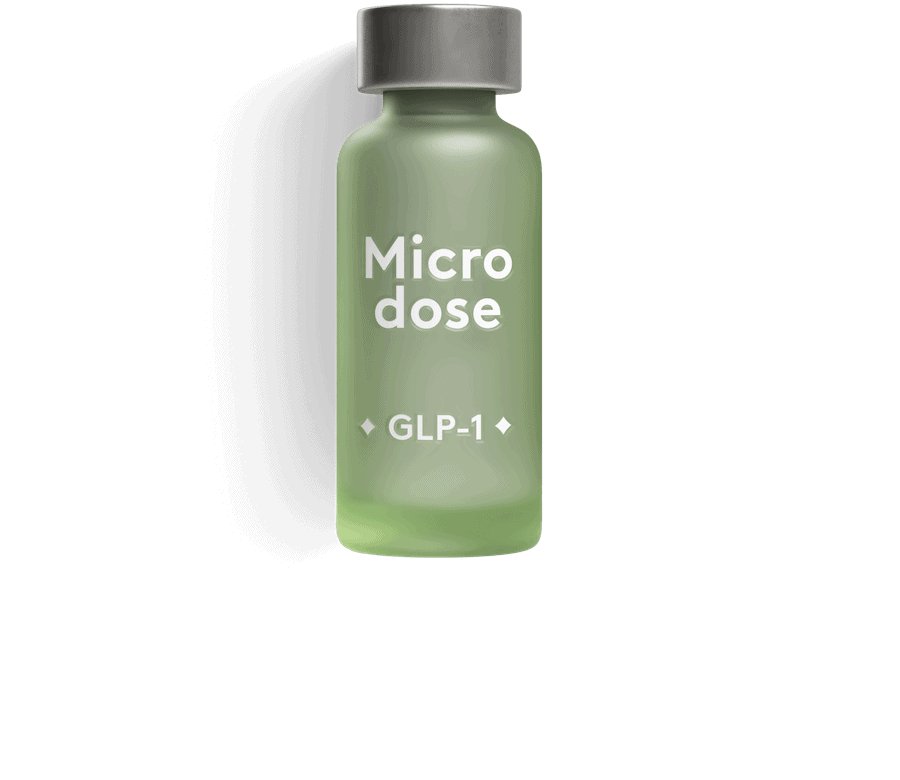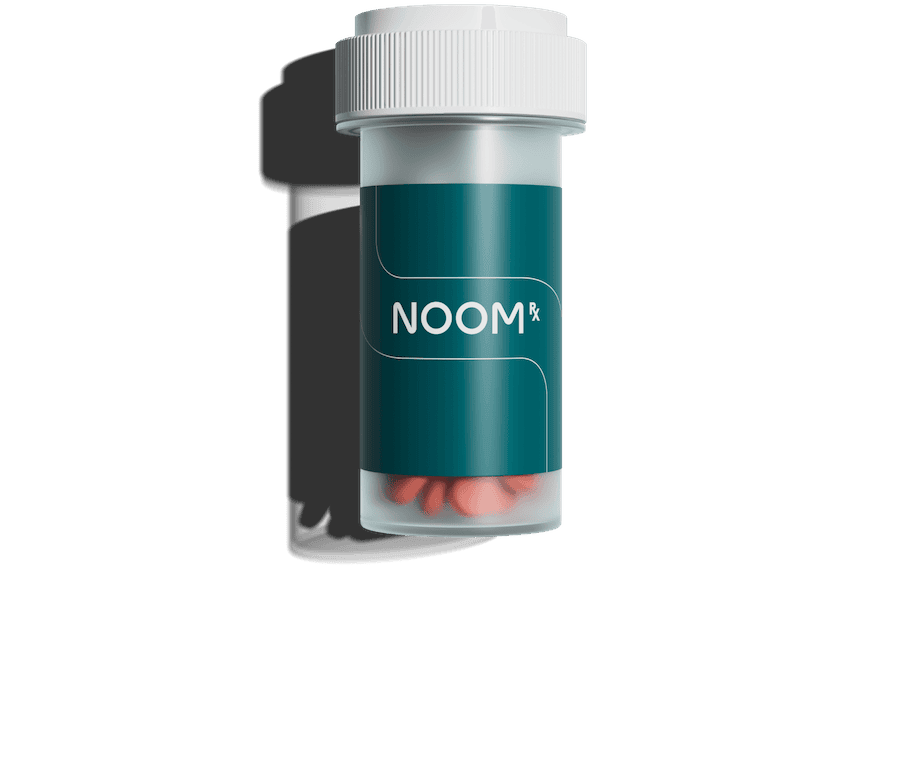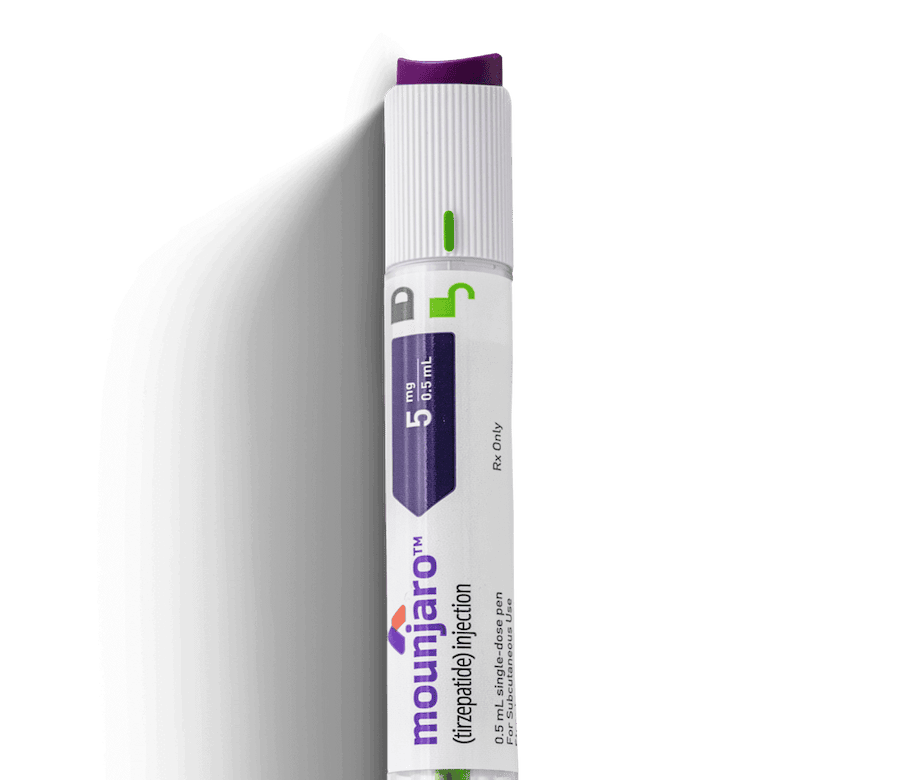For those looking for a healthy diet that can help them take care of their mental faculties, one option is called the MIND Diet. What is this diet, and how does it work? That’s exactly what we’re going to dive into with tons of research and all the facts you could want on this unique combination between the Mediterranean and DASH diets.
What Is the MIND Diet?
Even though most diet plans’ goal is to help people lose weight, this is not the goal of all diet plans. One example is the MIND diet, which stands for Mediterranean-DASH Intervention for Neurodegenerative Delay. As the name suggests, the purpose of this diet is to help people stave off the development of neurological diseases, such as dementia. The most prominent example is Alzheimer’s. In general, the MIND diet is a hybrid of the DASH diet and the Mediterranean (Medi) diet. Some research suggests that the MIND diet can help people reduce the risk of dementia and slow the decline that some people experience concerning neurological health.
A study published in September 2015 in the journal Alzheimer’s and Dementia reviewed several past studies that showed a connection between cognitive decline and dietary choices. Then, the research went on to borrow concepts from two proven diets, which were the DASH and Medi diet. As a result of this marriage, the MIND diet was born. Even though there are similarities between all three diets, the MIND diet is the only diet found to promote cognitive health, reducing the risk of dementia, making this a superior hybrid diet.
Even though no data suggests the MIND diet can reverse forms of dementia, including Alzheimer’s, the goal is to prevent its development. In this manner, those who are willing to stick to the MIND hybrid diet might reduce their chances of developing neurological problems later in life.
You can follow the MIND Diet on Noom and lose weight while protecting neurological function. Check out Noom today!

How Does the MIND Diet Work?
To follow the MIND diet effectively, it is essential to take a closer look at how it works. The MIND diet is much easier to follow than other diets, including the Mediterranean diet, which means that people should have an easier time sticking to it. In general, the diet has fifteen separate components. Ten food groups have been dubbed as “brain-healthy.” These include:
- Whole grains
- Fish
- Poultry
- Olive oil
- Wine
- Green leafy vegetables
- Other vegetables
- Nuts
- Berries
- Beans
In addition to the ten healthy food groups above, there are also five unhealthy food groups. These include:
- Fried or fast food
- Red meats
- Butter and stick margarine
- Cheese
- Pastries and sweets
Based on the information above, it should be clear that the MIND diet’s goal is to stick to the healthy food groups at the top of the list and avoid the unhealthy food groups as much as possible. In general, those who are looking to follow the MIND diet will follow these instructions:
- It is essential to eat at least three servings of whole grains, at least one salad, and at least one other vegetable every day.
- Some people might be glad to hear that a glass of wine per day is also included in this diet.
- Every other day, people should try to snack on nuts and eat a helping of beans.
- Twice per week, people should try to eat berries.
- Once per week, those following the MIND diet should eat one serving of fish.
It is also important to limit unhealthy food to less than one serving per week to lower the risk of Alzheimer’s disease.
Rx weight loss, the right way, with Noom
Get access to prescription weight loss medication with Noom.The Basics of the MIND Diet
Now that people know which healthy foods to include in their diets, it is time to look at how those trying to follow the MIND diet can stick to it. Some of the key points to keep in mind include:
- Vary the Recipes: At the beginning of the diet, it might be hard to stick to the MIND method’s restrictions. At the same time, getting creative is always helpful. Take a look at the diet and see what tastes good. Then, find creative recipes to switch up the tastes. This will prevent the diet from seeming monotonous.
- Set Realistic Expectations: Nobody is going to expect someone to switch up their diet overnight. Therefore, setting realistic goals and easing into the diet is an excellent place to start. Try to be flexible and remove one food from the diet at a time. Then, over time, switching to the MIND diet won’t seem like such a significant shift.
- Keep Bad Foods Out of the Home: Finally, try to keep out foods that are not on the healthy side of the diet by not having them in the house. This will remove temptation. Furthermore, try to carry healthy snacks to munch on throughout the day. This can help everyone stick to the MIND diet more easily.
By remembering the MIND diet’s real motivation, everyone will be able to use these tips to stick to healthy foods and avoid bad ones. Then, everyone can enjoy the neuroprotective benefits of the MIND diet!
The Guidelines for the MIND Diet – The MIND Diet Pyramid
In some cases, it might be easier for people to look at the MIND diet in the form of a diet pyramid. As with any pyramid, it is essential to start at the bottom and work out. Therefore, let’s begin by looking at the two diets that form the foundation of the MIND diet.
The first component is called a Mediterranean or Medi diet. The Medi diet is named in this manner because it is a traditional diet of people who live in the Mediterranean area of the world. Several foods commonly appear in the diet. The goal is to stick to plant food and minimally-processed foods. Some of the most popular foods include cereal grains, legumes, fruits, nuts, vegetables.
Also, fish is the primary source of protein in the Medi diet. Fish has already been found to be helpful to the neurological system. Even though small amounts of meat, dairy, and alcohol are scattered throughout the Medi diet, these are relatively small components.
The other central pillar of the MIND diet is the DASH diet. This diet was initially designed to help people who struggle with cardiovascular issues by providing heart-healthy foods. The acronym stands for the Dietary Plan to Stop Hypertension. Given that elevated blood pressure can increase the risk of neurological problems, it makes sense that this diet would be included in the MIND diet. The goal of the diet is to emphasize fruits, low-fat dairy products, and vegetables. In addition, this diet includes whole grains, fish, nuts, and poultry. Finally, this diet also reduces red meat, fats, sweets, and beverages containing a high amount of sugar.

In this manner, the DASH diet and the Medi diet form the pyramid’s foundation that makes up the MIND diet. Overall, the MIND diet emphasizes natural, plant-based foods and increases the consumption of berries, green leafy vegetables, and fish while limiting foods with saturated fats.
Now, turning the MIND diet into a pyramid, it is time to work from the ground-up. Those following recipes for the MIND diet should:
- Eat at least one dark green salad and one additional vegetable every day.
- Eat at least a single serving of nuts every day.
- Eat beans or other legumes every other day.
- Eat berries at least twice per week.
- Eat poultry at least twice per week.
- Eat fish at least once per week.
Finally, at the top of the pyramid, a single glass of wine every day, as long as a physician has approved this.
Overall, this diet seeks to reduce the decline in brain health that has been associated with dementia and Alzheimer’s disease. Even though this diet is still relatively new, there is a lot of evidence that shows that it can help people preserve their mental faculties by reducing the risk of dementia. In particular, those with a family history of neurological problems may want to consider starting this diet of brain-friendly foods at a younger age.
What Can I Eat on the MIND Diet?
For those looking to learn more about the MIND diet, it is helpful to look at some dos and don’ts. First, let’s take a closer look at the benefits of the foods listed in the MIND diet. Some of the most popular options include:
- Eating Berries: One of the most popular foods on this diet is berries. These include strawberries, blackberries, raspberries, and blueberries. First, berries are loaded with antioxidants. These antioxidants help scavenge free radicals that would otherwise damage the body’s cells, including the brain. Preventing this damage provides neuroprotective benefits. Berries are also high in fiber, which is excellent for digestive health. Finally, berries reduce inflammation that would otherwise damage the body’s neurons. In this manner, berries are great for those looking to preserve the nervous system.
- Eating Fish: Another leading food group on this diet is fish. Fish are high in omega-3 fatty acids, which is where most of their health benefits come from. Omega-3 fatty acids may reduce the risk of mental health conditions, including depression and bipolar disorder. Furthermore, omega-3 fatty acids might also prevent the development of Alzheimer’s disease and dementia. Finally, omega-3 fatty acids provide information that reduces the risk of cellular damage, arthritis, diabetes, and cardiac abnormalities.
- Eat Leafy Greens: Leafy greens are a significant component of this diet. They are packed full of vitamins, minerals, and fiber. As a result, leafy greens can reduce the risk of obesity, heart disease, and high blood pressure. Significantly, leafy greens can also reduce the risk of mental decline, which is where their neuroprotective benefits come from. As a result, they are one of the most critical parts of the MIND diet.
Best Foods To Eat on the MIND Diet
For those trying to follow the MIND diet, there are a few brain-friendly foods that people can eat regularly. Some of the top MIND diet foods include:
- Salmon: Salmon is an excellent choice for the MIND diet because it is among the fish that is highest in omega-3 fatty acids. With a high omega-3 content, its neuroprotective effects are strong.
- Nut Medley: A nut medley is a great snack for the middle of the day that provides numerous benefits for the nervous system. Nuts are high in vitamin B, which helps protect the brain’s nerve endings, making it one of the most brain-friendly foods.
- Spinach Salad: Spinach salad has an array of possibilities and is one of the most versatile recipes compliant with the MIND diet. Consider throwing in a few berries and nuts before finishing it off with a nice vinaigrette to hit multiple MIND diet groups, reducing the decline in brain health.
These are a few of the most important foods that people should eat on the MIND diet. By following these recommendations, individuals will invest in their neurological health as they age. At the same time, there are foods that people should try to avoid while following the MIND diet as well.

Popular Foods To Avoid on the MIND Diet
There are several popular foods that people should try to avoid on the MIND diet. Some of the foods that people should stay away from include:
- Avoid Butter and Margarine: On the MIND diet, the limit is less than one tablespoon per day.
- Cheese: Those following the MIND diet are limited to a single serving of cheese per week.
- Fried Food or Fast Food: Individuals on the MIND diet should not eat any more than one helping of fried or fast food per week.
- Red Meat: While red meat is okay from time to time, the servings should be small and should be limited to three times per week.
It is essential to think about what to eat on the MIND diet and what to avoid. By thinking about what is prohibited and sticking to minimally-processed foods, everyone will have an easier time staying on track.
Though no foods are prohibited on Noom, it is encouraged to minimize foods that are calorie dense, like butter, margarine, fried and fast foods. Learn more about Noom and how you can lose weight for good.
MIND Diet and Health
Now that there is a firm overview regarding the MIND diet, it is time to take a closer look at the evidence behind it. While the MIND diet’s premise sounds great, it doesn’t mean anything until it has been backed up by science. Fortunately, firm clinical studies have been done to provide everyone with a closer look at the benefits of the MIND diet with objective evidence.
Before starting a diet, it is vital to take a look at the evidence behind the claims. Numerous peer-reviewed studies have been published in reputable academic journals regarding the MIND diet. The goal of all of these studies has been to provide everyone with objective evidence, either supporting or refuting the MIND diet’s claims. Because these studies have been conducted by a wide variety of health and research experts in various settings, the results (and the evidence they have produced) are reliable and trustworthy. Therefore, to truly understand the MIND diet’s neurological benefits, it is crucial to look at these studies. What health benefits did these studies reveal?
The MIND Diet Improves Cognitive Function
One of the significant claims of the MIND diet is that this will improve people’s neurological function. This could include judgment, executive functioning, memory, and response times. Therefore, it is important to take a closer look at some of the studies that have explored the MIND diet and cognitive function.
Neuroprotective Diets Are Associated With Better Cognitive Function: The Health And Retirement Study
The objective was to look at the neuroprotective abilities of the MIND diet in a population that reflects older adults in the United States. The study results showed that greater adherence to the MIND diet led to a lower risk of cognitive impairment and better cognitive function.
The Role of Nutrition in Cognitive Function and Brain Ageing in the Elderly
The goal was to take a look at the literature regarding the role of nutrition in cognitive function and aging of the brain. The study found that while the MIND diet could help protect the brain, more work is required to narrow down which guidelines will offer the best protection.
The MIND Diet Slows Cognitive Decline
In addition to improving cognitive function, some people have indicated that the MIND diet could slow cognitive decline. There are peer-reviewed medical studies that have taken a look at this claim as well. It is critical to take a look at how these studies unfolded and the results they found.
Mind Diet Slows Cognitive Decline With Aging
The goal of researchers was to look at the effects of the MIND diet on the nervous system in 960 individuals in the Memory and Aging Project. The results of the study showed that the MIND diet slowed cognitive decline with age.
Mind Not Mediterranean Related To The 12-year Incidence Of Cognitive Impairment In An Australian Longitudinal Cohort Study
This study specifically compared the Medi diet to the MIND diet concerning cognitive decline with age. The study found that the MIND diet was superior to the Medi diet in preventing cognitive impairment over 12 years.
Association of Long-Term Adherence to the MIND Diet with Cognitive Function and Cognitive Decline in American Women
Researchers looked at the association between the MIND diet and cognitive decline. The study found that those who adhered to the MIND diet had better verbal memory later in life. The study encourages further examination of populations at a greater risk of cognitive decline.

MIND Diet and Parkinsonism
Parkinson’s Disease is one of the most common chronic medical conditions that people could develop as they age. With so many people suffering from this condition, some people have postulated that the MIND diet could help control this issue. There are a few medical studies that have taken a closer look at this claim.
Mind Diet Associated With Reduced Incidence And Delayed Progression Of Parkinsonism In Old Age
Authors looked at more than 700 participants between the ages of 59 and 97 and followed them to track their nutritional intake and watch for the development of Parkinson’s Disease. The study found that the MIND diet was associated with a reduced risk of Parkinson’s Disease while also slowing Parkinson’s progression.
MIND Diet and Alzheimer’s Disease
Alzheimer’s Disease is the most common form of dementia and is closely related to severe memory loss that descends into further neurological complications. Some people have claimed that the MIND diet can lower the risk of Alzheimer’s disease and preserve brain function. It is a good idea to look at some of the medical studies related to this topic.
Mind Diet Associated With Reduced Incidence Of Alzheimer’s Disease
The goal was to look at the association of the MIND, DASH, and Mediterranean diets with the incidence of Alzheimer’s in more than 900 people. The study found that all three diets were associated with a reduced risk of Alzheimer’s disease; however, the MIND diet was the most effective at preventing Alzheimer’s.
Nutrients in the Prevention of Alzheimer’s Disease
This review sought to summarize evidence behind the Mediterranean, DASH, and MIND diets concerning the prevention of Alzheimer’s Disease. The study found promising information regarding the specific neuroprotective effects of these diets on the brain and that more studies are needed.
Mediterranean and MIND Diets Containing Olive Biophenols Reduces the Prevalence of Alzheimer’s Disease
This study took a closer look at the role olives play in the MIND and Medi diets for Alzheimer’s disease. The study found that olive biophenols, specifically oleic acids and phenolic compounds, could play a role in preventing Alzheimer’s.
The Mediterranean, Dietary Approaches to Stop Hypertension (DASH), and Mediterranean-DASH Intervention for Neurodegenerative Delay (MIND) Diets Are Associated with Less Cognitive Decline and a Lower Risk of Alzheimer’s Disease
This review dug into dozens of studies on the diets and looked for patterns with respect to a reduced risk of cognitive decline and preserved brain function. The study found that strict adherence to the Mediterranean, DASH, or MIND diets was associated with reduced cognitive decline and a lower risk of Alzheimer’s disease, but the strongest associations are observed for the MIND diet.
MIND Diet and Stroke
A stroke is a cerebral event that leads to temporary or permanent blood loss to certain parts of the brain, depriving these parts of the brain of critical oxygen and nutrients. Can the MIND diet prevent the development of strokes? There are a few important medical studies to note.
Mediterranean-Dash Intervention for Neurodegenerative Delay (MIND) Diet Slows Cognitive Decline After Stroke
Here the goal was to look at the MIND diet and see if it prevented cognitive decline following a stroke in more than 100 people. Participants were tested using an array of questionnaires and procedures. The study found that strict adherence to the MIND diet reduced the rate of cognitive decline.
MIND Diet Slows Cognitive Decline in Stroke Survivors
This study took a look at the role that diet plays in the cognitive decline of those who have suffered a stroke. There were more than 100 people who were followed for about five years. The study found that strict adherence to the MIND diet reduced the rate of cognitive decline.
Dietary Patterns Associated With Slower Cognitive Decline Post Stroke
Here authors followed stroke survivors for just over four years using a series of food questionnaires and cognitive assessments. The study found that strict adherence to the MIND diet reduced the rate of cognitive decline.
How Much Does the MIND Diet Cost?
Of course, there are many people interested in pursuing the MIND diet but are a bit worried about how much the MIND diet is going to cost. There is a false perception that eating healthy is expensive. The good news is that this is not the case.

By taking a closer look at the most popular foods on the MIND diet, it is easy to see that the diet is relatively inexpensive. Vegetables and dark leafy greens are not expensive. Compared to other types of meat (particularly red meat), poultry is significantly less costly. Even though seafood and olive oil can be expensive, individuals on the MIND diet do not have to use a lot of olive oil and seafood is only required once per week. Therefore, the MIND diet does not have to be expensive.
Just like the MIND Diet, Noom is an affordable option that helps you lose weight for the last time. Check out more on this clinically-proven lifestyle plan today.
Will the MIND Diet Help You Lose Weight?
Obesity is one of the most pressing issues facing the medical system today. Therefore, it is vital to look at the MIND diet for weight loss and explore whether it can help someone lose weight. A few medical studies highlight benefits.
According to US News and World Report, The MIND diet was ranked as the 16th-best diet to lose weight. This doesn’t reflect its real goal: to protect the nervous system; however, given that the MIND diet is also a smart way of eating, those following this diet might lose weight.
Mediterranean Diet and Weight Loss
The Medi diet is one of the two diets that forms the foundation of the MIND diet. Many people have tried to follow the Medi diet to lose weight. Throughout the years, several studies have been published related to this diet and weight loss.
Obesity and the Mediterranean Diet: A Review of Evidence of the Role and Sustainability of the Medi Diet
This research took a look at the importance of acting early to stop the spread of obesity and took a look at the efficacy of the Medi diet in accomplishing this. The study found that the Medi diet was not just a food model but also a critical regime for disease prevention, including preventing obesity.
Adherence To A Mediterranean Diet And Long-term Changes In Weight And Waist Circumference In The Epic-italy Cohort
The idea of this study was to look at the ability of the Medi diet to promote long-term changes in weight and waist circumference. A total of 32,119 people participated, and the study found that the Medi diet was effective in preventing weight gain but not in promoting weight loss in those who were obese.
Mediterranean Diet and Cardiodiabesity: A Systematic Review through Evidence-Based Answers to Key Clinical Questions
The focus of this study was to examine dozens of articles published on the Medi diet to look for a relationship between this diet and positive metabolic impacts. The study found that the Medi diet prevents weight gain and prevents the development of metabolic syndrome, including the development of Type 2 Diabetes, thanks to heart-healthy foods.
DASH Diet and Weight Loss
The other diet on which the MIND hybrid diet is based is the DASH diet. This diet was initially put together to help people control their blood pressure; however, people have also studied the diet related to weight loss. Therefore, it is essential to highlight the results of these studies, as well.
The Effect Of Dietary Approaches To Stop Hypertension (DASH) Diet On Weight And Body Composition In Adults
What is the effect of the diet on body weight and composition in adults? Researchers found that the diet promoted more weight loss, particularly in overweight and obese people, compared to people eating a typical Western diet.
The Effects Of Dash Diet On Weight Loss And Metabolic Status In Adults With Non-alcoholic Fatty Liver Disease
The goal of this study was to uncover the effects of the diet on weight loss and metabolic status in patients who were overweight with non-alcoholic fatty liver disease (NAFLD). The study found that following the program for eight weeks positively impacted numerous lab markers, including body mass index.
DASH (Dietary Approaches to Stop Hypertension) Diet
This study reviewed the diet, what it is, how it works, and its impacts thus far in clinical trials. The study found that the diet reduced hypertension, stroke, type 2 diabetes, obesity, and adverse cardiac events. Sadly, the study found that the diet is hard to stick with long-term.

How Easy is the MIND Diet to Follow?
There is a saying that a diet is only helpful if it can be followed. Therefore, is the MIND diet easy to follow?
Recently, a US News and World Report article listed the “Best Diets” and the MIND diet was included seven times. The MIND diet was ranked in the top five for five separate categories (including healthy eating) and also took the best slot as the easiest diet to follow. While diets do require some discipline, the MIND diet is one of the easiest to follow.
How Much Should You Exercise on the MIND Diet?
One of the most critical tactics for improving overall health is a healthy diet and exercise. While there are no specific studies on the MIND diet and exercise, activity can still impact brain health.
Role Of Exercise On The Brain
The goal here was to take a look at the influence of exercise on numerous parts of the brain, including cognition. It found that exercise improves brain functions and prevents the decline of cognition across an entire lifespan. Exercise enhances neurogenesis and prevents the development of brain disease.
Physical Activity and Brain Health
Researchers reviewed the potential mechanisms underlying the effects of physical activity on brain health. The study looked at hormones, neurotrophins, and neurotransmitters. It was found that regular physical activity modulates these substances’ release, improving memory and mood while reducing pain.
Effects of Physical Exercise on Cognitive Functioning and Wellbeing
This study looked at the biological and psychological impacts of physical activity when it comes to brain activity. Authors found that physical exercise plays a crucial role in preventing neurodegeneration, but more information is needed to figure out how exercise plays this role.
The Effect of Exercise Training on Brain Structure and Function in Older Adults
The research team explored the role of exercise by investigating the effects of exercise training on brain structure and function in older adults. The study found that older adults involved in exercise training could experience neurological benefits because exercise could improve brain structure and function.
Exercise for Brain Health: An Investigation into the Underlying Mechanisms Guided by Dose
This study’s goal was to summarize the evidence on the effects of exercise interventions on cognitive improvements. The study found that the better people stick with exercise plans, the better the results for their neurological health.
A Sample Meal Plan for One Week: 7 Day MIND Diet Plan
It can be helpful to take a look at a sample 7 day MIND diet plan. A sample MIND diet meal plan might include:
Day 1:
- Breakfast- A veggie breakfast frittata with some toast
- Lunch- A tuna salad sandwich with whole-wheat bread
- Dinner- Grilled chicken with roasted broccoli
Day 2:
- Breakfast- Greek yogurt with fruit and nuts
- Lunch- A spinach salad with mushrooms, tomatoes, rice, and olive oil
- Dinner- Whole wheat pasta, broccoli, marinara sauce, chicken, and a salad
Day 3:
- Breakfast- Fruit smoothie
- Lunch- Kale Caesar Salad
- Dinner- Turkey and quinoa chili
Day 4:
- Breakfast- Scrambled eggs and avocado with whole-wheat bread
- Lunch- A spinach salad with strawberries, almonds, and olive oil
- Dinner- Spinach, brown rice, and grilled salmon
Day 5:
- Breakfast- Pancakes with blueberries and walnuts
- Lunch- Celery, hummus, and a grilled chicken sandwich
- Dinner- Cabbage salad, a whole-wheat roll, and roast turkey
Day 6:
- Breakfast- A bagel sandwich with an egg and blueberries
- Lunch- A turkey sandwich with tomatoes, lettuce, and hummus
- Dinner- Quinoa stir fry with veggies and beans
Day 7:
- Breakfast- Oatmeal with fruit and almonds
- Lunch- Grilled chicken with feta cheese, tomatoes, cucumbers, and olive oil
- Dinner- Baked salmon, Brussel sprouts, quinoa, broccoli, and a glass of wine

These MIND diet meals are a great place to start and can form a MIND diet shopping list.
In the right quantities, you can follow every one of these MIND Diet meal suggestions on Noom. All you have to do is keep portion control in mind and you’ll lose weight.
MIND Diet Recipes
When looking at MIND diet meals, it is good to form a MIND diet meal plan. Some of the top recipes for the MIND diet include:
Breakfast:
- Six ounces of Greek yogurt
- ½ cup of blueberries
- ½ cup of strawberries
Lunch: A salad with-
- 1 cup of romaine lettuce
- 1 cup of fresh cucumber slices
- ½ cup of tomato wedges
- 1 tsp of low-calorie Italian dressing
- 1 tbsp of sunflower seeds
Dinner:
- 3 ounces of salmon
- 1 tsp tarragon
- 1 tsp mustard
- ½ cup couscous
- ½ cup zucchini
- 4 asparagus spears
- 1 cup lima beans
- 5 ounces of red wine
Snack:
- ½ cup assorted nuts (almonds, pecans, cashews, walnuts)
Snack:
- 1 cup of hummus
- Assorted carrot sticks or celery sticks
These recipes could form the foundation of a MIND diet shopping list, helping you find the right MIND diet foods.
The Bottom Line
The bottom line is that this is one of the easiest diets to follow. Individuals on the MIND diet can still eat a variety of foods, and it is relatively easy to stick to. Also, when compared to other types of diets, the MIND diet is not that expensive. Furthermore, numerous benefits are associated with this combination DASH/Medi plan.
Take a look at how Noom works with calorie density and portion control to help you stick with a weight-loss diet long term – even if you’re choosing the MIND Diet.
Questions & Answers on the MIND Diet
What do you eat on the MIND Diet?
You eat whole grains, berries, vegetables, nuts, beans, poultry, and fish.
Is the MIND Diet good for weight loss?
This diet is not geared toward weight loss; however, weight loss is possible.
Can you eat eggs on the MIND Diet?
The MIND diet does not prohibit eggs. The Medi diet, on which the MIND diet is based, encourages eggs.
Who created the MIND Diet?
It was created by Martha Clare Morris, Ph.D., who is a Rush University nutritional epidemiologist.
What does the MIND Diet stand for?
It stands for Mediterranean-DASH Intervention for Neurodegenerative Delay.
Is there a MIND Diet app?
Yes, there is a MIND diet app available on the Google Play store.
Why you can trust us
At Noom, we’re committed to providing health information that’s grounded in reliable science and expert review. Our content is created with the support of qualified professionals and based on well-established research from trusted medical and scientific organizations. Learn more about the experts behind our content on our Health Expert Team page.





















 Meaghan Cameron
Meaghan Cameron
 Noom Team
Noom Team

 Shoshana Fishbein
Shoshana Fishbein
 Melissa Kay
Melissa Kay
